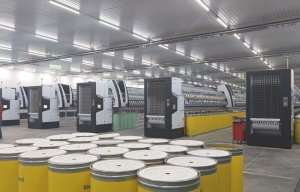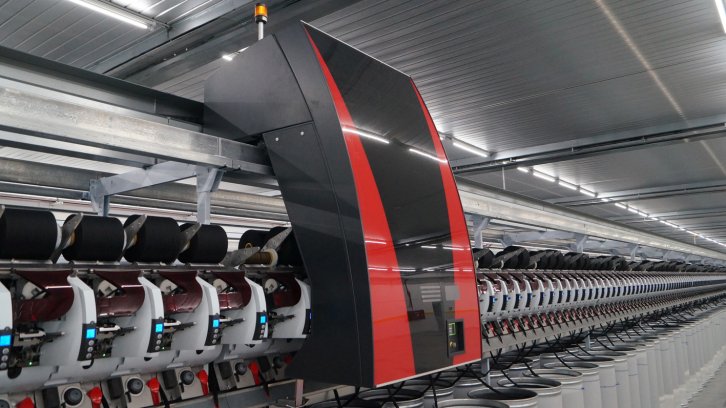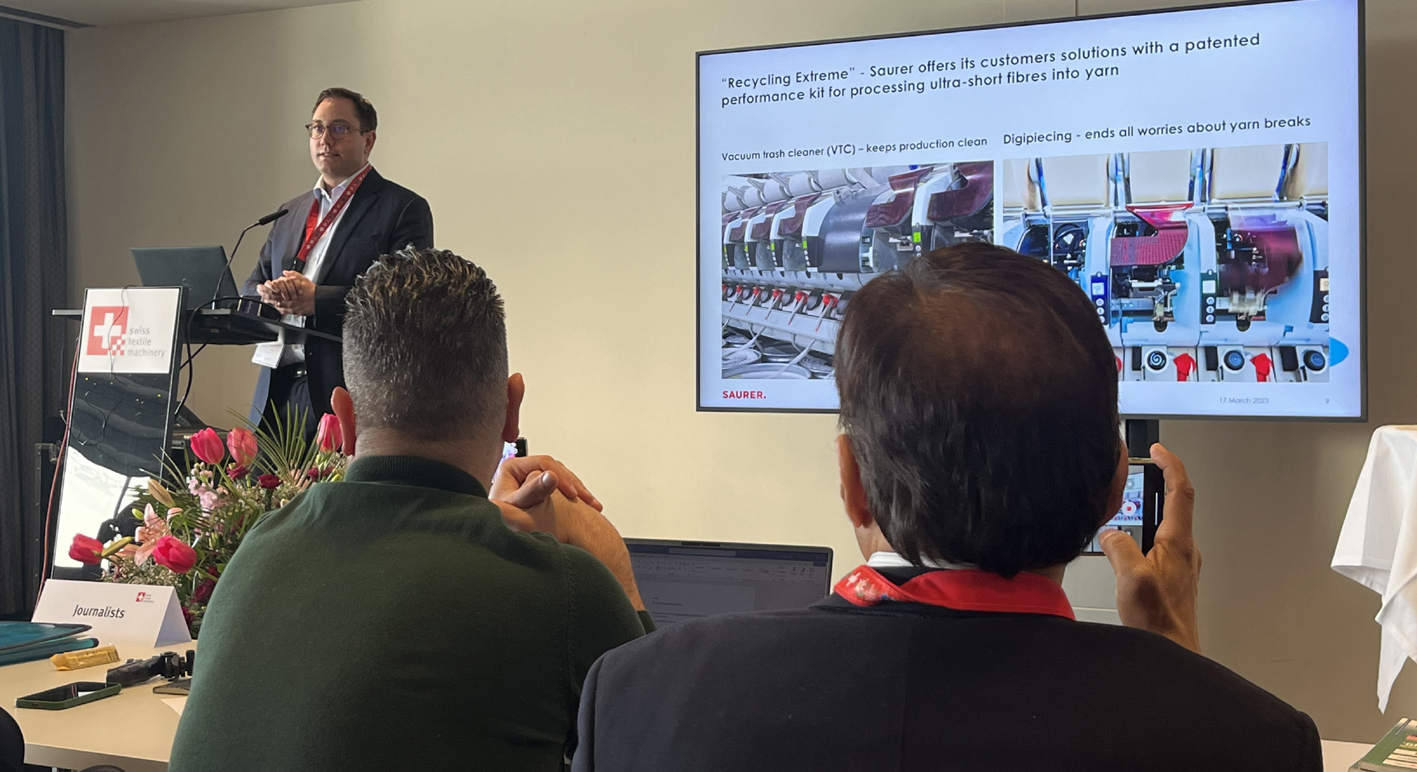
Biska’s new rotor spinning supersite
Patented new doffing cleaning unit (DCU) rises to the challenge of ultra-short recycled fibres.

21st March 2023
Innovation in Textiles
|
Arbon, Switzerland
Saurer remains a market leader in the spinning machinery sector, with more than a million spindles sold on deliveries of its Autocoro units in 2022.
Speaking at the special press event organised by industry association Swiss Textile Machinery in Berne from March 16-18, Saurer’s managing director Marcus Rennekamp highlighted the well-reported drive to deal with textile waste, which for spinning mills means incorporating more recycled fibres.
“Today only between 30-35% of textiles are collected separately, but by 2030 the aim in Europe is that up to 80% will be recycled in some way and that the share of fibre-to-fibre recycling will grow to 18-26% from just 1%,” he said. “A high degree of contamination, reduced production speeds and a lot of personnel intervention are all common consequences of using recycled short-staple fibres in a rotor spinning mill.
“Extreme recycling is the new challenge for yarn producers, with ultra-short fibres bringing conventional spinning machines to their limits. We have developed a patented performance kit for dealing with these ultra-short fibres, based on a vacuum trash cleaner (VTC) to keep production clean, and Digipiecing which ends all worries about yarn breaks. The first trials using this have shown an increase in production by more than 30%.”

Rotor
The new doffing cleaning units (DCUs) on the Autocoro 10 have been designed to help spinners to achieve both higher yarn quality and personnel efficiency.
Fully automatic rotor spinning essentially consists of four key processes – spinning and winding, automatic piecing and automatic doffing of yarn packages.
On the Autocoro, the first three processes have been integrated into each individual spinning position for more than a decade through individual drive technology, resulting in high productivity.
When doffing a package, rotor cleaning is carried out simultaneously by the DCUs which travel from spinning position to spinning position. Up to eight DCUs can be configured differently on Autocoro machines depending on the machine length, package size, yarn count and raw material.
Each DCU can be precisely adjusted to the quality requirements of its lots and work areas and the most important task in the context of yarn quality assurance is to clean the rotors, both pneumatically and mechanically. On the Autocoro 10, this is now even more efficient, with cleaning processes digitally controlled using the latest linear motor technology. A new movement mode for the cleaning scraper has been integrated, and its positioning in the rotor groove is more precise and significantly more efficient thanks to an additional circuit.
Patented
This new cleaning technology loosens and removes even the most stubborn dirt and sticky residue in the rotor, paving the way for impeccably clean rotors and leading to a more reproducible yarn quality, regardless of fibre type.
During market launch tests, the cleaning technology proved effective for all fibres that are difficult to spin, such as recycled and regenerated fibres.
A patent on the DCU has now been granted and the new rotor cleaning system will be integrated into all newly delivered Autocoro 10 systems as of summer 2023. It will also be available as a retrofit kit for Autocoro 8 and Autocoro 9.
“We have achieved an energy consumption reduction of 38% on Autocoro systems over the past decade as a result of our E3 programme and we are now responding to the latest challenge of the five million tons of recycled fibres that will need to be accommodated by spinners in the next five years,” Rennekamp concluded.

Business intelligence for the fibre, textiles and apparel industries: technologies, innovations, markets, investments, trade policy, sourcing, strategy...
Find out more